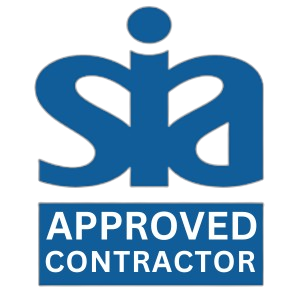When it comes to K9 security, ensuring your dog handling team complies with London’s strict regulations isn’t just smart—it’s essential. Dog units are a visible and effective deterrent, but if your K9 security team isn’t following the law to the letter, it could mean serious consequences for your business. In this guide, we’ll explore everything you need to know to keep your K9 unit compliant in London.
What Is a K9 Security Team?
A K9 security team typically consists of a trained handler and a professionally trained guard dog. Together, they provide an extra layer of protection, particularly for sites that require a strong visual deterrent—like construction sites, warehouses, large events, and vacant properties.
But in the UK, and especially in London, you can’t just pair any dog with any handler and call it a security unit. There are dog handling regulations that must be followed to ensure public safety and maintain professional standards.
Understanding K9 Security Regulations in London
In London, dog handlers are regulated by several bodies and legal acts. If your K9 security team isn’t aligned with these regulations, you’re at risk of legal penalties, loss of licences, and even criminal charges.
Here are the key regulatory requirements every K9 security provider must follow:
1. SIA Licensing Is a Must
Every security dog handler in London must hold a valid Security Industry Authority (SIA) licence. This licence demonstrates that the handler has passed background checks and undergone the necessary training.
Without an SIA licence, your handler is not legally allowed to work in the security industry—dog or no dog.
2. Compliance with BS 8517 Standards
BS 8517 is the British Standard that governs K9 security services:
-
Part 1 covers the general use of security dogs.
-
Part 2 outlines how dog handlers should be trained and monitored.
These standards ensure that dog and handler teams operate safely, effectively, and professionally. Clients seeking K9 security in London should always ask providers if they adhere to BS 8517.
3. Proper Dog Handling Training
The dog handler must have completed a recognised NASDU (National Association of Security Dog Users) or BIPDT (British Institute of Professional Dog Trainers) course. These programmes are designed to train handlers in canine behaviour, control, welfare, and security deployment tactics.
A dog handler without accredited training poses a serious liability to your business and public safety.
Legal Requirements for Security Dogs in London
When deploying dogs for security, London has clear legal expectations to protect both the animals and the public. Key legislation includes:
1. The Guard Dogs Act 1975
This Act states that:
-
Guard dogs must always be under the control of a handler.
-
Warning signs must be placed at the entrances of the premises where dogs are working.
-
Dogs should never be left unattended in a public setting.
2. The Animal Welfare Act 2006
This act ensures that animals used in K9 security are treated ethically. Handlers must:
-
Provide proper food, shelter, and healthcare.
-
Ensure dogs are not overworked or mistreated.
-
Offer regular rest and downtime between shifts.
Failure to follow this act can result in prosecution and potential bans from owning or handling animals.
Equipment and Identification for K9 Units
For a K9 security team in London to be compliant, the right gear and identification are vital:
-
High-visibility vests for both dogs and handlers.
-
Muzzles, if required by breed or situation.
-
Dog identification tags and handler SIA cards on display.
-
Vehicles used for K9 transport must be ventilated, secure, and temperature controlled.
These elements not only meet regulations but also instil confidence in the professionalism of your service.
Why Compliance Matters for Your Business
Non-compliance can lead to hefty fines, court cases, and even business closures. But that’s not the only risk. Your company’s reputation is on the line too.
Here’s why staying compliant is critical:
-
Avoid Legal Issues: Breaching dog handling laws can bring legal consequences, including criminal charges.
-
Protect Your Brand: Clients want to know they’re hiring a legitimate, professional service.
-
Ensure Public Safety: Trained dogs and qualified handlers reduce the risk of injury or incident.
-
Better Results: A well-regulated K9 security team is more effective in deterring and managing threats.
How to Choose a Compliant K9 Security Provider
When hiring or partnering with a K9 security service in London, always check for:
-
Valid SIA licences for all handlers
-
Proof of NASDU or BIPDT training
-
Compliance with BS 8517 standards
-
Transparent insurance and liability coverage
-
Ethical treatment and welfare of the dogs
Don’t be afraid to ask for credentials and policy documents. A trustworthy provider will have nothing to hide.
Conclusion: Don’t Take Risks With Compliance
If you rely on a K9 security team in London, it’s your responsibility to ensure they meet all legal and regulatory standards. From licensing and training to welfare and public safety, compliance isn’t optional—it’s crucial.
Whether you’re an event organiser, construction manager, or private business, double-check that your K9 security measures are fully compliant. It’s not just about following rules—it’s about protecting people, animals, and your reputation.
FAQs
Q: What happens if my dog handler doesn’t have an SIA licence?
A: It’s illegal for them to operate. You risk fines and legal action.
Q: How can I verify a handler’s training?
A: Ask for NASDU or BIPDT certification and check with the training provider if needed.
Q: Are there different rules for private vs public properties?
A: The laws generally apply across all settings, but public spaces may have stricter requirements.
Q: Do K9 units require insurance?
A: Yes, liability insurance is essential for operating a security dog team legally and safely.



